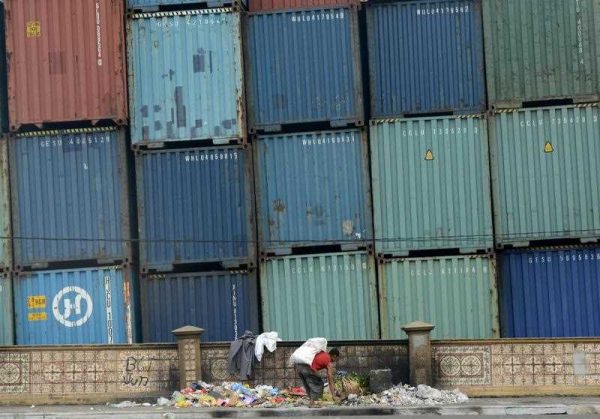APEC began as an endeavour to reconcile ‘Western’ desires for reciprocal, enforceable and verifiable agreements, with Asian preferences for community building and inclusivity. The APEC agenda continues to struggle with different emphases. Western ‘trade’ theorists and officials see themselves as distinct from ‘development’ economists and officials, but in Asia there is a stronger common bond around communities, connectivity and infrastructure. Trade was always a means for enhancing welfare. This looks larger in Asia but there is common ground, which the APEC agenda seeks to exploit.
The APEC agenda has been built with an eye to countering public scepticism, within many APEC economies, about ‘trade and investment liberalisation’ or even ‘economic integration’. In the course of managing change, governments have to present their strategies and interventions, so as to attract support from much more than elites who participate explicitly in international transactions.
In 2015, the Senior Officials’ Meeting, the Committee on Trade and Investment, and the Economic Committee continued to work on the entire agenda of regional integration. The host economy for the 2015 Economic Leaders’ Meeting, the Philippines, has given particular emphasis to small and medium enterprises, the services agenda, as well as sustainable and inclusive growth. And the Economic Committee will table an APEC Economic Policy Report on ‘Structural Reform and Innovation’, which will seek to accommodate the importance of services in the modern economy.
While the Economic Leaders’ Meeting will mostly endorse what APEC economies have been able to agree on during 2015, there will also be some longer-range exploration of how Asia-Pacific collaboration may develop. In that respect the most important idea up for consideration will be the Free Trade Area of the Asia-Pacific (FTAAP).
The FTAAP will be on the agenda, because at their 2014 meeting in Beijing, the leaders agreed to a ‘collective strategic study’. While there was no agreement on what study means, and no commitment to any particular idea of the FTAAP all 21 APEC economies elected to be members of a taskforce for the study.
Officials will not be satisfied, but they will be able to deduce what appetite there is for forward movement. The big change since 2014 is the ‘agreement’ on the Trans-Pacific Partnership (TPP). But there will be caution about issues of ratification (especially in the United States), and about how the public in many member states will respond when they eventually see the terms of the agreement, including the texts of side-letters that may affect their interests. The most likely response will be that complaints of secrecy will give way to complaints of incomprehensibility.
It is clear that in in some economies, the possibility of joining the TPP will be controversial. The White House fact sheet reported Indonesian President Joko Widodo saying Indonesia would join the TPP. But no time scale was stated and some observers interpreted the statement as an aspiration courtesy. Thailand and the Philippines discussed investment and trade diversion as a result of the TPP.
The United States Trade Representative lacks any interest in China joining the trade pact. Anybody looking at the politics of ratification of the TPP in the US Congress would see reason to be sceptical about the authorisation of talks — let alone the prescribed parameters for any agreement. And Taiwanese interest in joining the TPP will further complicate relations with China.
Leaders will talk about the implications of the TPP for their own economies and for their international economic diplomacy.
At the Economic Leaders’ Meeting 12 of the leaders, including seven from members of the TPP, will also discuss the implications of the TPP for the Regional Comprehensive Economic Partnership (RCEP). They will have advice that goes beyond the rhetoric of ‘high standards’. Leaders will be aware of what level of ambition is needed to avoid derisory dismissal in comparisons with the TPP. They should have advice on the extent to which the TPP has been, and is, undermined by its conception as a set of bilateral agreements. Leaders should strengthen their resolve to make RCEP a genuinely regional agreement.
The FTAAP is not likely to be a conventional trade agreement, but a mechanism for ensuring the TPP and RCEP do not become incompatible. The ‘collective strategic study’ should be a search for a novelty in world economic diplomacy, not yet another consideration of tariff schedules.
But this will be revealed only in the wording of the eventual communique. Those looking for clear action from leaders will be disappointed.
Gary Hawke is an Associate Senior Fellow at the New Zealand Institute of Economic Research, and a member of the Academic Advisory Council of the Economic Research Institute for ASEAN and East Asia.

